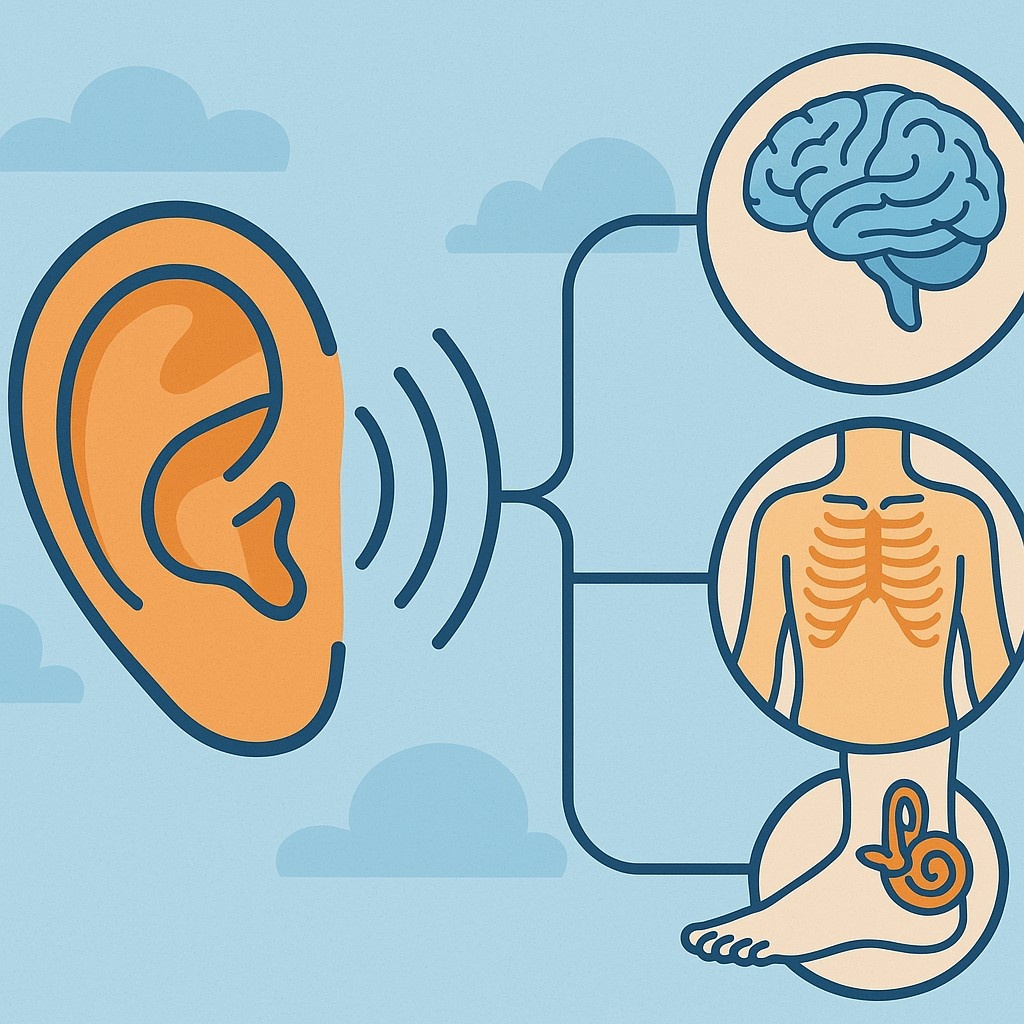Introduction
When you think about your ears, you probably think about hearing music, conversations, or the sound of rain. But your ears do much more than just help you hear. They play a major role in your balance, brain health, and overall body function.
Yes — those small organs on the sides of your head are connected to almost everything you do, from walking in a straight line to keeping your heart steady when you stand up.
The Ear: A Tiny Organ with Big Responsibilities
Your ear has three main parts — the outer ear, middle ear, and inner ear — and together they form one of the body’s most complex systems.
- The outer ear collects sound.
- The middle ear amplifies it with three tiny bones (the smallest in your body!).
- The inner ear sends signals to your brain — not just for hearing, but also for balance and motion.
So, when your ear isn’t working right, your whole system feels off — from your steps to your mood.
Balance Starts in Your Ears
Ever wondered why you feel dizzy or off-balance when your ears are blocked or infected? That’s because your inner ear houses the vestibular system — your body’s built-in balance center.
It detects movement and position, helping your brain know which way is up.
If this system gets disturbed (like during an ear infection or inner ear disorder), you may feel dizzy, lightheaded, or even nauseous.
Your ears literally help you stand tall and move confidently every single day.
The Ear-Brain Connection
Your ears and your brain are a team.
Every sound you hear travels through nerves to your brain, where it’s decoded into meaning — like recognizing your friend’s voice or a car honking behind you.
But there’s more:
Poor ear health or hearing loss can strain your brain. When your brain works harder to process unclear sounds, it can cause mental fatigue, confusion, and even memory problems over time.
In fact, studies show that untreated hearing loss is linked to a higher risk of cognitive decline and social isolation.
So, caring for your ears is also caring for your mind.
How Ear Health Affects Overall Wellness
Healthy ears mean a healthier body. Here’s how:
- Blood flow & pressure: The ears are sensitive to circulation changes — dizziness or ringing (tinnitus) can signal heart or blood pressure issues.
- Movement & reflexes: Your body’s ability to react quickly to sound (like a honk or alarm) keeps you safe.
- Emotional health: Constant ringing, pain, or hearing loss can cause stress and anxiety.
- Sleep & rest: Ear discomfort or noise sensitivity often disturbs sleep, affecting your mood and energy.
Your ears silently support your physical, mental, and emotional well-being every day.
Simple Ways to Keep Your Ears Healthy
- Don’t insert objects like cotton buds deep into your ears.
- Keep your ears dry and clean after swimming or bathing.
- Protect your ears from loud noises — use earplugs at concerts or when using machines.
- Stay hydrated and maintain good circulation.
- Eat foods rich in antioxidants, vitamins A, C, and E for ear health.
- Schedule regular ear checkups, especially if you experience ringing or dizziness.
Final Thoughts
Your ears are not just gateways to sound — they are guardians of your balance, mood, and mental clarity.
When you take care of your ear health, you’re really taking care of your whole body.
So the next time you hear your favorite song or enjoy the quiet hum of the evening, take a moment to appreciate your ears — small, mighty, and deeply connected to your well-being.

